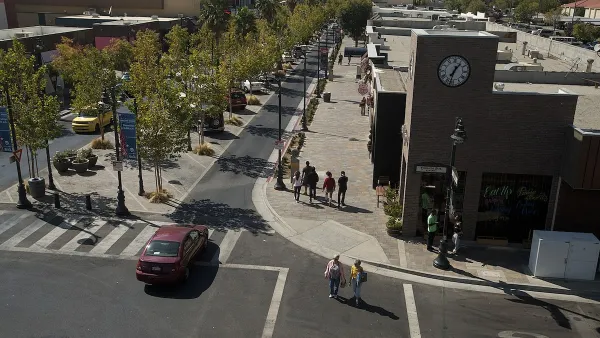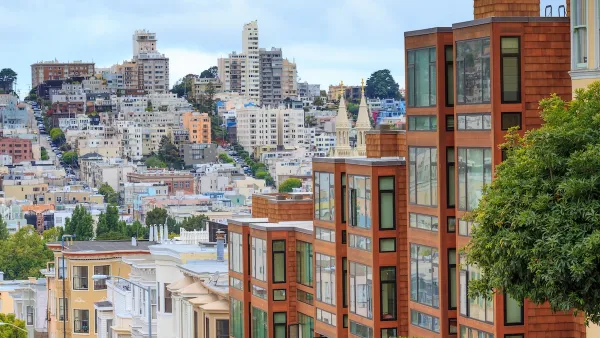A new study suggests that density, mixed-use neighborhoods, short city blocks, and, crucially, walkability foment political and social activism, reports Richard Florida.
In a paper published recently in the Urban Affairs Review titled "Walk and Be Moved: How Walking Builds Social Movements," Brian B. Knudsen, a research associate at Urban Innovation Analysis, and Terry N. Clark of the University of Chicago argue that, "engagement in political activism or social movements is shaped by walkability, density, the physical layout, and the unique experience of cities—'the ways in which an individual interacts with and makes use of urban environments, neighborhoods, and spaces.'"
"The study provides substantial evidence that it is not just density, or the crowding together of people in urban areas that shapes political and social activism, but the direct engagement of the city through walking," explains Florida. "As Knudsen told me via email, these 'social qualities of walking' operate through two primary mechanisms. On the one hand, walking 'activates imagination and creativity' and on the other, 'it empowers people to act through creating trust and familiarity.' And he adds: 'It does both in part through enabling social interactions.'"
FULL STORY: How Walkability Shapes Political Activism

Planetizen Federal Action Tracker
A weekly monitor of how Trump’s orders and actions are impacting planners and planning in America.

Chicago’s Ghost Rails
Just beneath the surface of the modern city lie the remnants of its expansive early 20th-century streetcar system.

San Antonio and Austin are Fusing Into one Massive Megaregion
The region spanning the two central Texas cities is growing fast, posing challenges for local infrastructure and water supplies.

Since Zion's Shuttles Went Electric “The Smog is Gone”
Visitors to Zion National Park can enjoy the canyon via the nation’s first fully electric park shuttle system.

Trump Distributing DOT Safety Funds at 1/10 Rate of Biden
Funds for Safe Streets and other transportation safety and equity programs are being held up by administrative reviews and conflicts with the Trump administration’s priorities.

German Cities Subsidize Taxis for Women Amid Wave of Violence
Free or low-cost taxi rides can help women navigate cities more safely, but critics say the programs don't address the root causes of violence against women.
Urban Design for Planners 1: Software Tools
This six-course series explores essential urban design concepts using open source software and equips planners with the tools they need to participate fully in the urban design process.
Planning for Universal Design
Learn the tools for implementing Universal Design in planning regulations.
planning NEXT
Appalachian Highlands Housing Partners
Mpact (founded as Rail~Volution)
City of Camden Redevelopment Agency
City of Astoria
City of Portland
City of Laramie





























